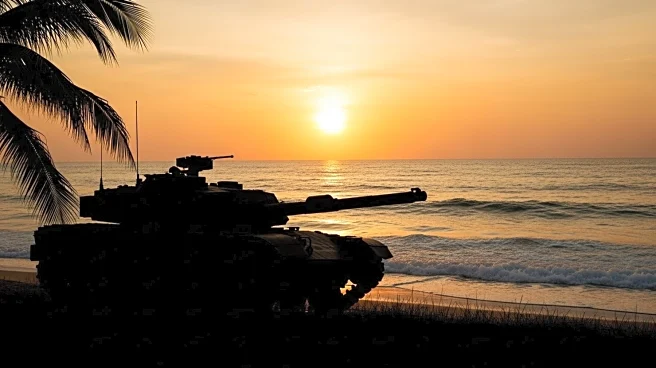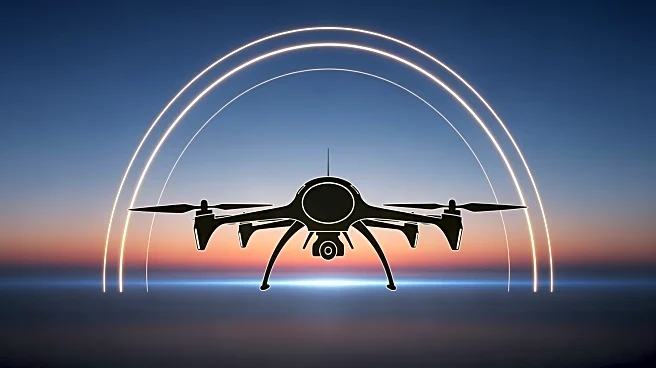What's Happening?
Venezuelan President Nicolás Maduro has declared that he would 'constitutionally declare a republic in arms' if Venezuela is attacked by U.S. forces currently deployed in the Caribbean. This statement comes as the U.S. government increases its maritime presence in the region to combat drug cartels, deploying two Aegis guided-missile destroyers and planning to add three amphibious assault ships. Maduro has responded by deploying troops along Venezuela's coast and border with Colombia and urging citizens to join a civilian militia. Venezuelan Foreign Minister Yván Gil criticized the U.S. deployment as based on a 'false narrative,' arguing that most cocaine from Colombia is trafficked through the Pacific, not Venezuela. The U.S. military action is part of President Trump's strategy to curb drug trafficking and violence linked to cartels.
Why It's Important?
The escalation of military presence by the U.S. in the Caribbean and Venezuela's response could heighten tensions in the region, potentially destabilizing Latin America. The U.S. aims to disrupt drug trafficking routes, but Venezuela views this as a threat to its sovereignty. The situation could impact U.S.-Venezuela relations and influence regional politics, especially given the U.S.'s non-recognition of Maduro's presidency. The deployment also reflects broader U.S. foreign policy under President Trump, focusing on aggressive measures against perceived threats. The outcome of this standoff could affect international perceptions of U.S. interventionism and its implications for regional stability.
What's Next?
The U.S. military presence is expected to expand with the arrival of additional naval forces. Venezuela's government may continue to mobilize its military and civilian forces in response. Diplomatic channels remain open, with Maduro maintaining communication with the U.S. State Department and Trump's envoy for special missions. The international community, particularly Latin American countries, may seek to mediate or express concerns over the potential for conflict. The situation could also influence domestic politics in Venezuela, as opposition leaders support U.S. actions against Maduro's government.
Beyond the Headlines
The U.S. military deployment in the Caribbean raises questions about the legality and ethics of such actions in international waters and their impact on regional sovereignty. The narrative of drug trafficking as a justification for military presence may be scrutinized, especially if evidence suggests alternative trafficking routes. The situation highlights the complexities of U.S. foreign policy in Latin America, where historical interventions have left lasting impacts. The potential for conflict underscores the need for diplomatic solutions and regional cooperation to address drug trafficking and political instability.












